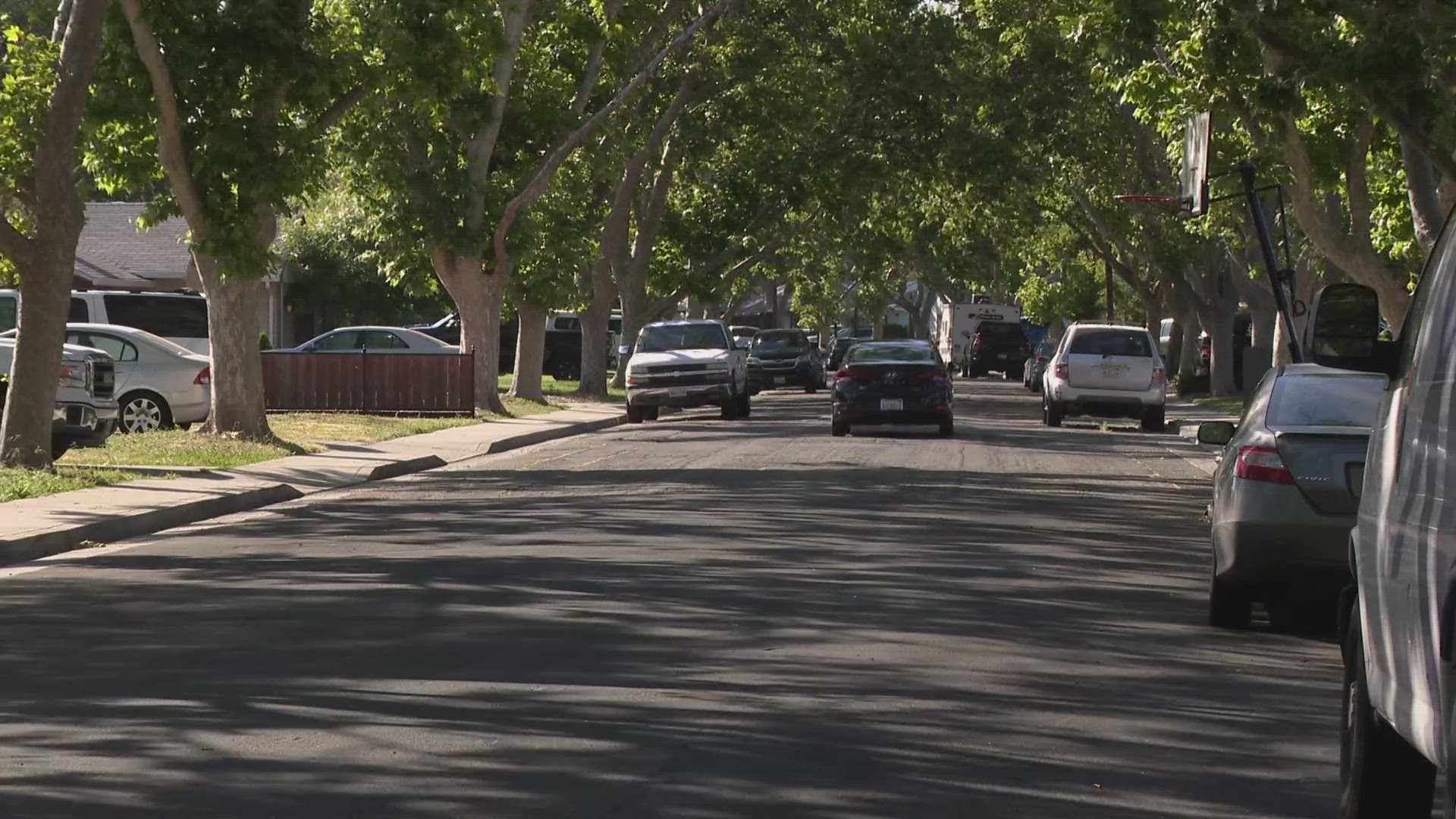FAIRFIELD, Calif. — Fairfield residents are concerned and frustrated after learning about five registered sex offenders moving in right next door to them and down the street from multiple places where children go.
The men live on Lincoln Street in Fairfield, less than 1,000 feet from a Montessori preschool, a private elementary school and a career college academy where middle school students attend.
While Jessica’s Law, passed in 2006 by voters, keeps sex offender parolees from being placed within 2,000 feet of any school or park where children are, it doesn't apply to all cases and "shall not be enforced as a blanket restriction."
Three of the six men were charged with sexual assault crimes with minors and are registered on California Megan's Law Website — a site providing information about registered sex offenders so the public can "better protect themselves and their families."
The other three were charged with sexual battery and rape.
One man violated his parole by not registering by his birthday. He was arrested by Fairfield police and booked into Solano County Jail, according to the Fairfield Police Department.
"The Fairfield Police Department takes all registered sex offenders released into our community very seriously," said Chief Dan Marshall of the Fairfield Police Department. "The community’s safety is of the utmost importance to us. We will continue doing what we can to protect it through continual legislative changes.”
While the home sold in January, neighbors on Lincoln Street just recently found out who was moving in.
Mike Zbyczik lives a few houses away with his 5-year-old granddaughter in a home he’s been at for more than 40 years. He’s angry about not being notified.
"I want to know why we weren't informed so I could've taken provisions like building a 6-foot tall fence or something," said Zbyczik. "It was sneaky and underhanded. That shouldn't happen."
He says his neighbor, a concerned mother, brought it up to him when his granddaughter and her friends were playing out in the yard.
He's also worried about other kids walking to and from school in the area and playing outside.
"My kids grew up here and they had a safe neighborhood. Now my granddaughter is here and it's not safe," said Zbyczik. "It's unnerving... I want my neighborhood back the way it was."
Vicki Bailey owns the preschool just down the street from the house and says while she isn’t worried about her own students’ safety, she feels bad for the neighbors nearby.
“It’s like a ghost town. It doesn't look like the family-friendly neighborhood it used to be,” she said. “It’s just sad… I had no idea what was going on. We should’ve been notified.”
City officials told ABC10 they weren't made aware of this change and are looking into it.
"I, the city council, police chief and city manager are doing everything we can to protect our residents. State parole can legally put these sex offenders in 'containment' houses in any neighborhood without the city’s consent or knowledge," wrote Fairfield Mayor Cat Moy. "The neighborhood will work to take back the neighborhood."
The Solano County District Attorney's Office says they have nothing to do with placing parolees or notifying residents nearby unless the parolee is a "violent sexual predator."
Mary Wyn with the DA's office says they aren't even notified of parolees being placed in the county unless a violation has occurred.
So, if city officials, local law enforcement, the county DA's office and residents weren't notified, how did this happen?
"A sex offender is not obligated to notify neighbors about his/her sex offender status. But Megan’s Law allows for people to find out if certain offenders live in their neighborhood," said Mary Xjimenez, Information Officer with the California Department of Corrections and Rehabilitation (CDCR). "The law mandates the California Department of Justice (DOJ) to notify the public about certain registered sex offenders. The DOJ does this via the Megan’s Law website."
Xjimenez says CDCR’s Division of Adult Parole Operations works with people to make sure they have a housing plan in place once released from incarceration. If there is no plan, DAPO helps that person get approved housing.
She says CDCR does not choose where these parolees end up.
"By law, parolees return to the county of last legal residence. There may be circumstances where they don’t return to the CLLR based on individual case factors," said Xjimenez.
As for notifying, she says it is "required when the person is 60 days from release to the sheriff, chief of police and district attorney to the city/county having jurisdiction over the conviction and where the sex offender is being released to."
Additional information about residence restrictions for registered sex offenders can be found in the CA Code of Regulations, Title 15, Division 3, Chapter 1, Subchapter 6, Article 5, Section 3571.

